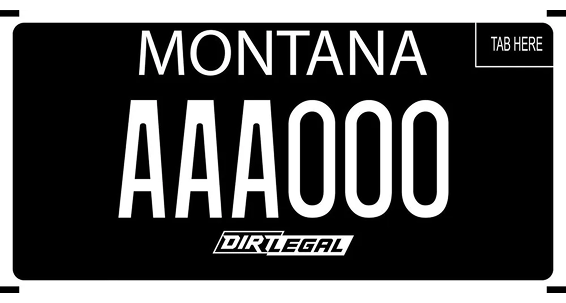Speed cameras are no longer just a big-city concern—they’re everywhere.
Suburban neighborhoods, rural towns, and even highways where speeding once felt like a gamble with a radar gun are now under watch.
New legislation is fueling their rapid expansion, transforming how speed enforcement works and how drivers approach the road. These cameras are part of a growing effort to crack down on dangerous driving, but they’re also catching plenty of unsuspecting drivers off guard.
Understanding the changing speed ticket laws is key to staying safe and avoiding fines. Whether you’re cruising down a quiet stretch of highway or passing through a school zone, these cameras don’t miss a thing.
As speed enforcement becomes more automated, drivers need to adapt to these changes to avoid costly tickets—and the headaches that come with them.
Here’s a breakdown of what you need to know to navigate this new era of road safety and enforcement.
The Push for Speed Cameras: What’s Behind It?
The primary goal behind the expansion of speed cameras is to enhance road safety. According to the National Highway Traffic Safety Administration (NHTSA), speeding is a significant factor in nearly 29% of all traffic fatalities.
By automating speed enforcement, municipalities aim to curb reckless driving, reduce the number of accidents, improve overall compliance with speed limits, and ultimately save lives.
Studies, such as the IIHS Study on Speed Cameras in Montgomery County, Maryland, have shown that areas with speed cameras often see a notable drop in speeding violations and crash rates, supporting the argument that these devices contribute to safer roads.
However, the widespread implementation of speed cameras hasn’t come without its share of controversy. Critics argue that some jurisdictions use speed cameras more as a tool for revenue generation than for public safety, turning traffic enforcement into a financial operation.
This sentiment grows stronger in cases where cameras are installed in poorly marked zones or in spots that seem designed to catch drivers off guard rather than encourage safe driving habits.
Inconsistent signage, lack of transparency about camera locations, and questionable placement—like just beyond a speed limit change—can leave drivers feeling more frustrated than protected.
The debate raises important questions about fairness and effectiveness.
While speed cameras undoubtedly have the potential to save lives, municipalities must strike a balance between safety and public trust by ensuring proper signage, clear communication, and ethical implementation of these devices.
Where Are New Speed Cameras Being Installed?
New speed camera installations are targeting key areas, including:
School Zones: Many states, including Maryland and New York, have implemented speed cameras near schools to protect students.
Construction Zones: Cameras are now common in work zones to ensure driver caution around workers.
High-Crash Areas: Municipalities are analyzing crash data to place cameras where speeding is a recurring problem.
Urban and Suburban Streets: With heavy pedestrian traffic, these areas are high on the priority list for speed enforcement.
Want to know if your area is affected?
Check out this interactive map provided by the NHTSA to see where new cameras are planned or already installed.
How These Laws Are Changing Speed Enforcement
Recent legislation is making several key changes to speed ticket enforcement:
Higher Fines: Penalties for speeding violations caught on camera have increased in many states. For example, in Illinois, fines in construction zones can reach $375 for a first offense.
Fewer Warnings: Some jurisdictions are eliminating leniency periods, meaning tickets are issued immediately without warnings for first-time offenses.
Expanded Hours of Operation: Speed cameras in school zones used to operate during limited hours. Now, they’re often active all day or even 24/7.
Point System Impact: While some states keep camera violations off your driving record, others, like New York, are starting to assign points to repeat offenders.
Stay updated by reviewing your local Department of Motor Vehicles (DMV) guidelines.
Visit your state’s DMV website to check how speed camera tickets affect your record.
What You Can Do to Avoid Speed Camera Fines
Here are practical tips to stay on the right side of the law:
Use Real-Time Tools: Apps like Waze and Google Maps provide alerts for speed cameras on your route.
Check Signage: Always watch for posted speed limits and speed camera warnings, which are required in many areas.
Invest in a Dash Cam: While it won’t prevent fines, a dash cam can provide evidence if you believe a ticket was unfairly issued.
Stay Informed: Regularly check updates to speed enforcement laws.
Tools like the AAA Digest of Motor Laws are helpful resources.
Plan Your Route: Avoid high-enforcement zones during peak traffic times if possible.
Understanding Your Rights as a Driver
If you receive a speed camera ticket, you have rights. Here’s what you need to know:
Appealing a Ticket: Most jurisdictions allow you to contest a ticket if you believe it was issued in error. This often requires proving that the speed camera malfunctioned or was improperly placed.
Evidence Request: You can request the photographic or video evidence associated with your ticket.
Grace Periods: Some states allow a brief grace period to pay the fine without penalties or interest.
To learn more about your rights, consult the National Motorists Association.
The Bigger Picture: How Drivers Can Adapt
The rise of speed cameras isn’t just about avoiding fines; it’s a call to action for drivers to prioritize safety behind the wheel.
Speed limits are more than just numbers on a sign—they’re carefully calculated thresholds designed to protect drivers, passengers, pedestrians, and cyclists. By adhering to these limits, you not only stay compliant with the law but also reduce the risk of accidents, injuries, and fatalities.
Every time you choose to slow down, you’re actively contributing to a safer driving environment for everyone on the road. In today’s tech-savvy world, staying informed and proactive about speed enforcement is easier than ever.
Apps like Waze not only provide real-time navigation but also alert drivers to the locations of speed cameras, helping you adjust your driving habits before it’s too late.
Beyond that, organizations like the National Highway Traffic Safety Administration (NHTSA) offer valuable resources, tips, and data to help drivers better understand traffic laws, the importance of speed compliance, and how to navigate the road safely.
Ultimately, speed cameras serve as a reminder that small decisions—like slowing down or staying aware of changing speed limits—can make a big impact. It’s about more than avoiding a ticket; it’s about making conscious choices that protect lives, including your own.
Want to avoid surprises on the road?
Visit the NHTSA for the latest updates on speed enforcement laws, and download Waze to get real-time alerts for speed camera locations.
Knowledge is your best defense against unnecessary fines!



